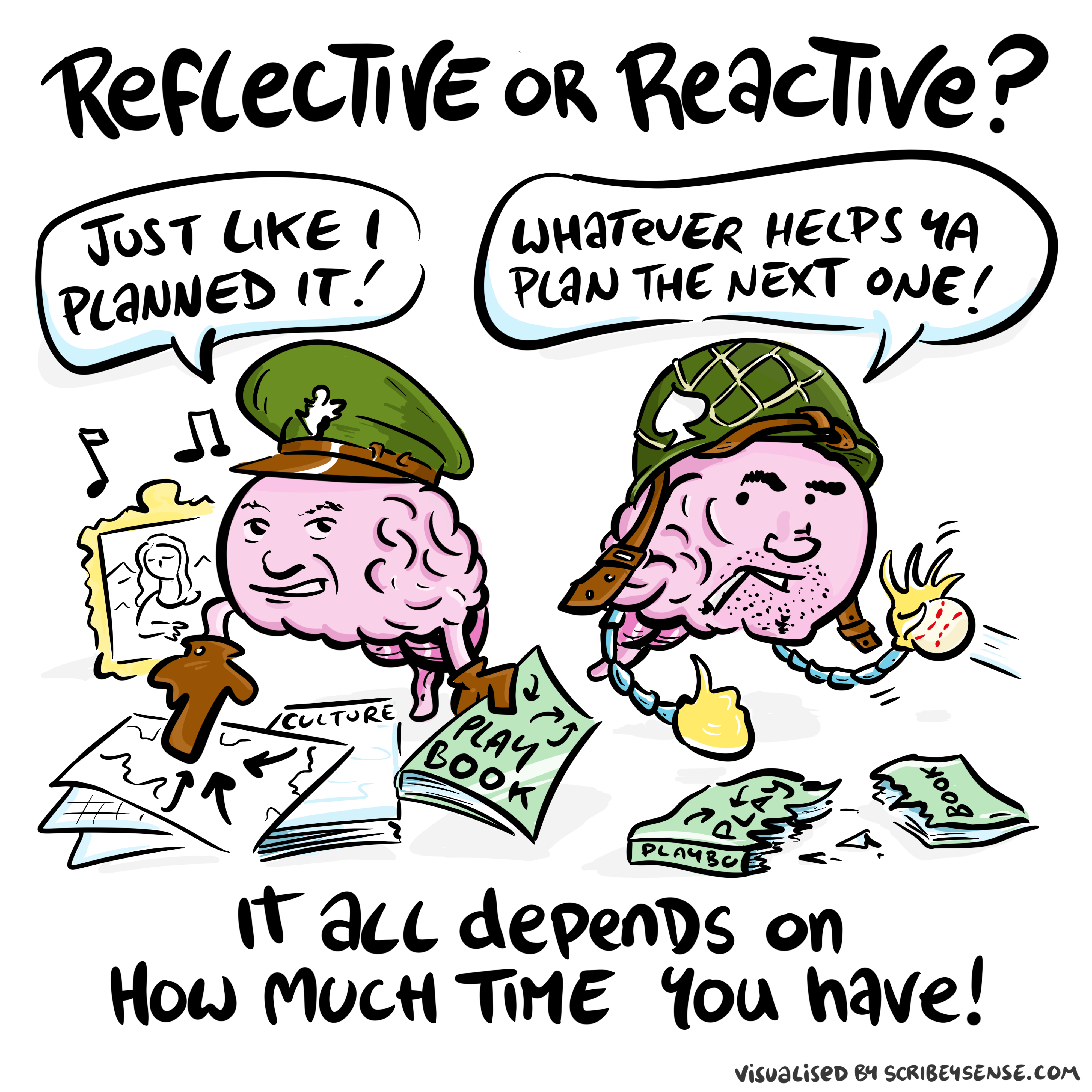Dan Andrews: It's Not Rocket Science or Brain Surgery
Description: Two sides to our thinking need to reconcile giving the illusion of control.
Source: Drawn on commission by Dan Andrews of scribeysense.com
Tags:

Dan Andrews runs https://scribeysense.com. We’ve worked with him a lot as a graphical scribe for many ai@cam and Accelerate Science events.
This is what he picked out from Chapter 7.
Click to see what the machine says about the image and the book
Commentary by Machine
Dan Andrews’ drawing for Chapter 7, It’s Not Rocket Science or Brain Surgery, captures key themes of The Atomic Human. The chapter explores the interplay between reflexive and reflective systems, emphasizing how our intelligence and decision-making process are shaped by the time available and the context of action.
Key Themes in the Chapter
Reflective vs. Reflexive Systems: The chapter describes how humans toggle between deliberate, reflective thinking (long-term planning) and instinctual, reflexive actions (immediate responses). This is mirrored in the artwork, where one brain calmly plans (“Just like I planned it!”) while the other reacts on the fly, tearing up plans to handle an unfolding crisis.
Synergy Between Planning and Reaction: The Apollo Moon landing and Armstrong’s intervention are used as examples to demonstrate that while planning is essential, real success often depends on fast, intuitive decisions under pressure. The tearing playbook in the drawing symbolizes how plans sometimes need to be abandoned in favor of reactive improvisation.
Time as a Determinant: Lawrence discusses how the urgency of a situation dictates which system—reflective or reflexive—takes precedence. The drawing humorously illustrates this, as the reflective brain calmly operates in leisurely conditions while the reactive brain scrambles under time pressure.
Motor Intelligence: A significant part of the chapter highlights the role of motor intelligence—our ability to control movement without conscious thought. This is likened to trained reflexes seen in sports or survival situations, such as Armstrong’s landing or a cyclist avoiding a fall.
Visual Inspiration and Interpretation
The drawing cleverly encapsulates Lawrence’s central idea: human success depends on the dynamic balance between preparation and immediate adaptation, where both reflective planning and instinctive reactions are critical.
Commentary from ChatGPT 4o1 on 15th December 2024